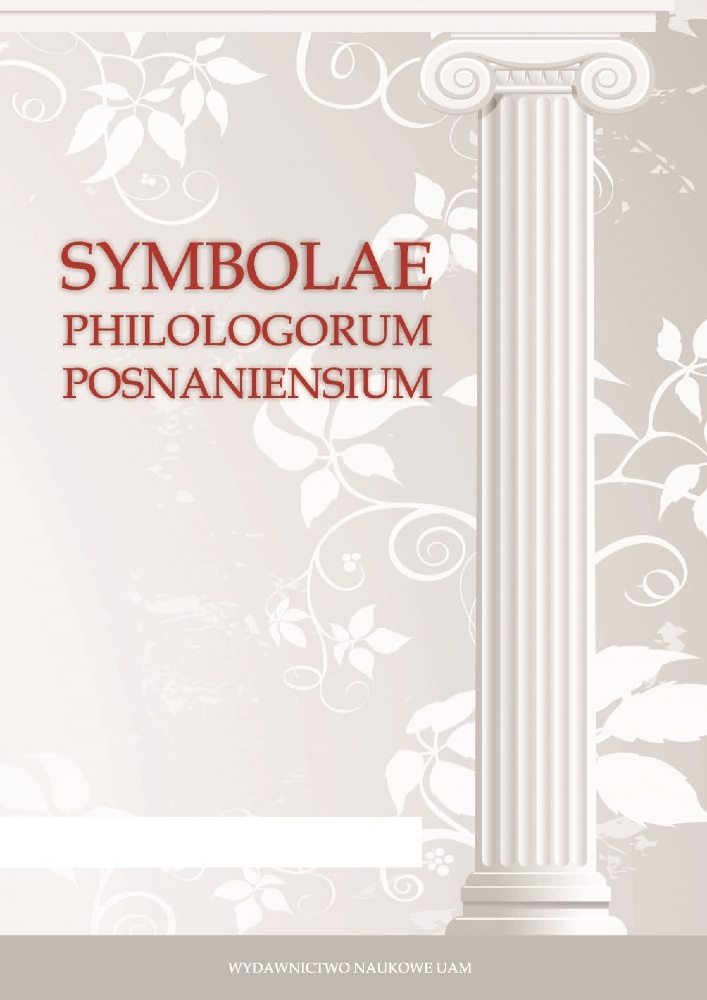Abstrakt
The story of Medea provides a wide range of themes to be explored and passion emerges as a frequent one. This article is based on the text Medea by the Stoic Seneca, yet in some parts comparisons will be drawn with Euripides’ tragedy of the same name as well. They treat the same theme in remarkably different ways: In the Senecan tragedy, Medea’s long soliloquies or monologues differ from Euripides’ version in that they reveal the protagonist’s inner conflict between the voices of passions and reason. This tragedy particularly focuses on the passions amor (love), ira (anger), furor (madness, insanity) and the consequent self-division. Therefore it can be analyzed from both psychological and philosophical aspects.Bibliografia
Cicero, Tusculan Disputations, with an English translation by J. E. King, The Loeb Classical Library, London 2001.
Seneca, Epistles 66–92, with an English translation by R.M. Gummere, The Loeb Classical Library, London 2001.
Seneca, Moral Essays, vol. I, with an English translation by J. W. Basore, The Loeb Classical Library, London 1928.
Seneca, Seneca’s Tragedies. “Hercules Furens” – “Troades” – “Medea” – “Hippolytus” – “Oedipus”, vol. I, with an English translation by F. J. Miller, The Loeb Classical Library, London 1965.
Braund S.M., Latin Literature, London–New York 2002.
Guastella G., “Virgo, Coniux, Mater”: The Wrath of Seneca's Medea, „Classical Antiquity” 20/2, 2001.
Herington J., Senecan Tragedy, „Arion” 5/4, 1966.
Menzilcioğlu Ç., Seneca’nın Medea ve Phaedra Tragedyalarında Tutkuların Gizemli Çatışması, Arkeoloji ve Sanat Yayınları, İstanbul 2011.
Licencja
